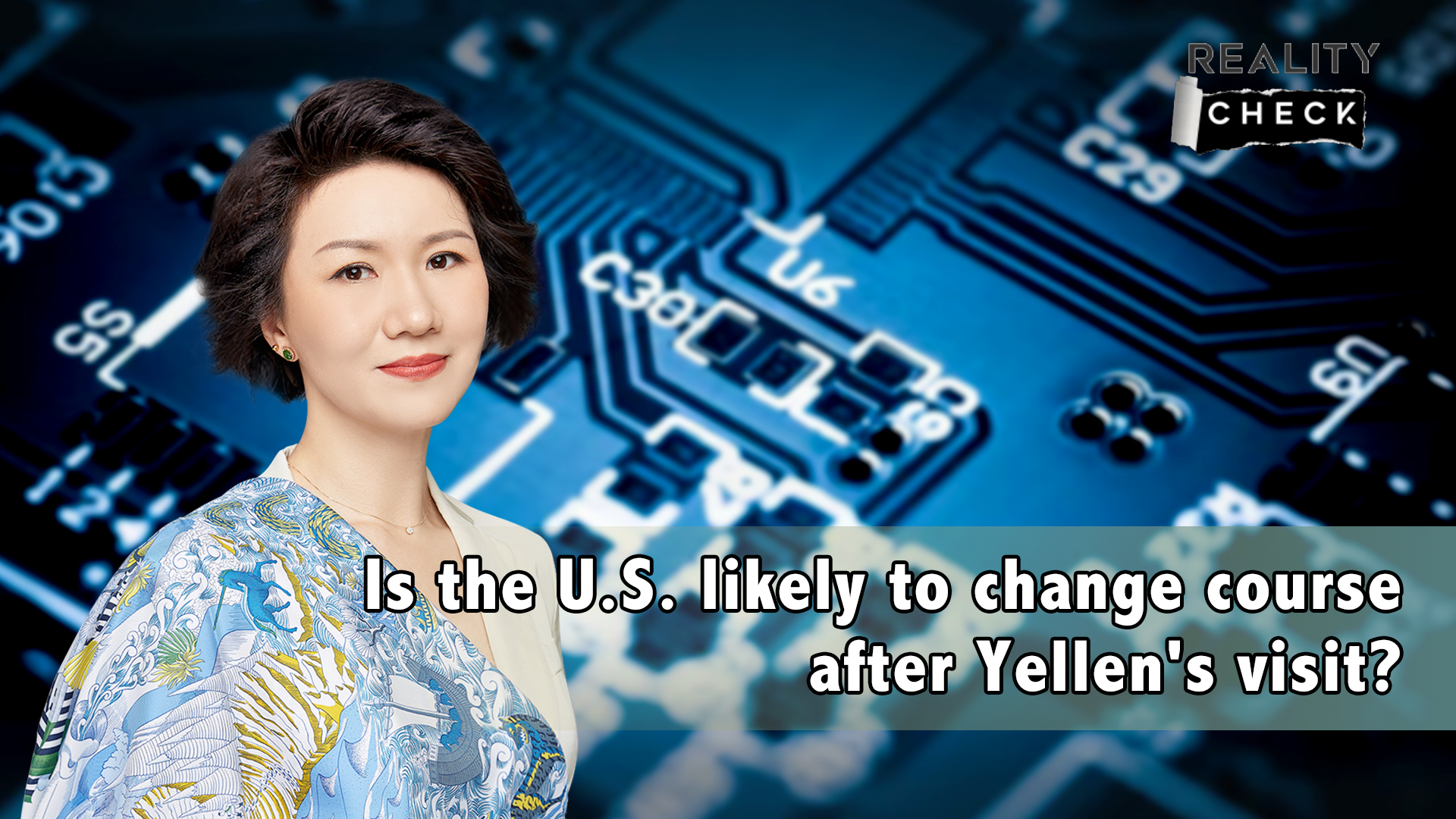U.S. isn't seeking to decouple from China, U.S. Treasury Secretary Janet Yellen reiterated during her visit to China. But Prof. Liang Yan from Willamette University stresses "action after the talking." And Prof. Anton Fedyashin reminds a timeline: we're just over one year from the U.S. election.
02:34

Liu Xin: Do you think there is anything new that came out of Secretary Yellen's rhetoric this time?
Anton Fedyashin: There is a general attempt to scale down the geopolitical and the geoeconomics standoff. But fundamentally, nothing has changed. The Chips Act in the United States is a protectionist act. And so, this is what the United States is trying to do, to pull the United States out of the recession, the economic slowdown. And I don't see any reason for it to change.
As a matter of fact, remember that we are just over a year from the American election. And unfortunately, when elections take place in the United States, foreign policy and international trade issues that are always complex by definition get unfortunately oversimplified and exaggerated and become hostages of politicking in Washington.
Liu Xin: Is the U.S. likely to change course on policies after this meeting?
Liang Yan: The talking is talking, but what comes after the talking is the real action. So, I think, for one, when it comes to tariff issues, if the United States is really clear on the "no decoupling" aspect, then I don't think they should continue to impose tariffs on over $300 billion worth of Chinese exports. So, I think if there are any actions to show the U.S. is not engaged in decoupling and does not want to gain economic advantages over China, then they should work on the tariffs. But unfortunately, I agree that with the political cycle, it's unlikely that the U.S. is going to take any positive actions on that front.
And what I'm worried about is that the U.S. can easily go from the so-called "small yard high fence" approach to a broader decoupling. So, you mentioned the 600 firms that are on the blacklist. And on top of that, they are also going to ban cloud services to some of the Chinese firms and also investment in China, as you just mentioned. So, I think the tech area is very sensitive. China really wants to develop its technology, right? And for all kinds of good reasons, to be more self-reliant. So, I think that is really the tricky part where you wanted to have a tech decoupling that could easily spread over to many other areas.